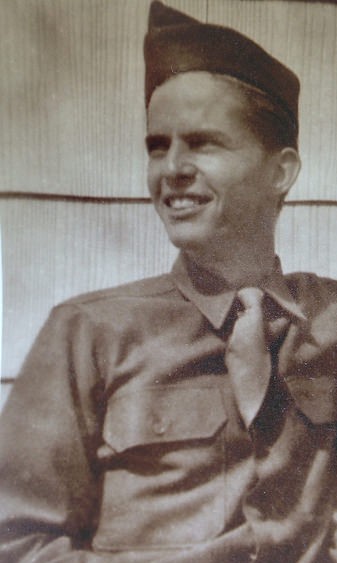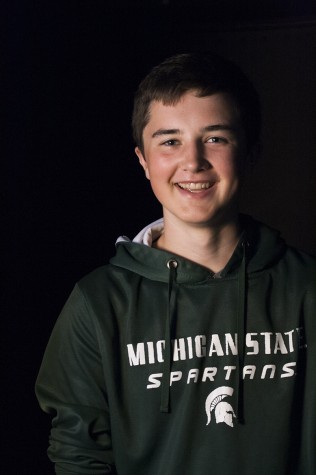Danny Galloway : An Average Twentieth Century Life

Danny Galloway wanted to start earning money at the age of eight. Galloway, born in 1925, was surrounded by the Great Depression. The times were tough for everybody and jobs were hard to find, but that didn’t stop Galloway from going out and getting one. “The greatest thing I’ve learned in that job that paid six cents an hour, working with these adults, was to learn discipline and to work. To get a task done and not being told what to do,” Galloway said. He began running back and forth to the grocery store, buying and delivering items for the elderly: one penny at a time. The money wasn’t very good, even for the times, but he had a source of income. Later, in junior high, he got a job at the grocery store bagging items, cleaning the store and stocking the shelves. The job paid only six cents an hour, but taught him how you needed to work in order to succeed. His mentality of doing what needed to be done, and to take initiative would help him succeed in life.
In 1944, when he was 19 years old, Galloway went into the army. By 1945, Galloway was an Air Force trained pilot, stationed at a base in the United States. He watched World War II in Europe come to an end. A few months later, in August of 1945, two atomic bombs were dropped on Hiroshima and Nagasaki, Japan. The dropping of the bombs led the Japanese to surrender shortly after. Galloway was thankful for the dropping of the bombs and believes it saved his life by ending the war. Not having any source of income after World War II, Galloway decided to go to college.
Galloway was accepted into the University of Kentucky. He wanted to be an architect, but Kentucky didn’t offer a degree in architecture. He went into civil engineering. After two years, in 1948, Galloway transferred to the University of Michigan. Then, with two semesters left, Galloway dropped out of college. He didn’t love the field he was heading into and decided not to finish. Galloway does not regret his decision not to finish. “It was one of the best decisions I ever made,”he said.
Galloway began working in the construction industry. He worked hard and learned some valuable skills, but wasn’t a good enough businessman to succeed in construction. He had a wife and three children to take care of, and construction wasn’t going to cut it. He and his wife sat down and figured there were thousands of jobs he could do, they just needed to find something that met the requirements of what they wanted to get out of life. They settled on dentistry and Galloway went to dental school.
After school Galloway began to practice dentistry in Ann Arbor. He liked the job and thought it was a “superb activity.” Although “I didn’t make a lot of money… I didn’t have desires to become rich,” he said. “You know, money doesn’t buy you happiness or anything like that.”
Galloway’s children were taught that the rest of the world isn’t as well off as Americans are. During the fifties, America was flourishing due to postwar industry, but the rest of the world was struggling. His kids were taught that it isn’t fair how such a small percent of the world’s population can consume such a large percent of the worlds goods.
“Wars don’t deprive us,” Galloway said, “But if a man won’t fight for his place in the sun, he’s going to die. Because someone else is going to come and take it, take him out of the way.” That’s what has happened with consumerism. Although everyone else was deprived, America flourished and Galloway wanted his kids to know why. Whether it is right or not, the U.S. took its place in the sun after World War II, and it has shaped how people consume goods today.
Galloway has had many jobs, learned many skills and pursued many opportunities, but when asked what the greatest thing he’s learned is he replied with this, “To help other people help themselves.” “You can’t do for other people what they aren’t willing to do for themselves. That is not helping people, that’s hindering them. But encouragement to do well, encouragement to make a decision, to show them a way.” In ninety years that’s the greatest thing he’s learned.



